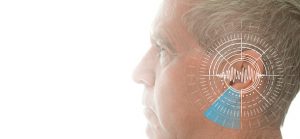 Noise-induced hearing loss is the most common type of hearing loss. Before, noise-induced hearing loss was mainly seen among older adults as years of noise exposure ultimately lead to hearing loss. Nowadays, noise-induced hearing loss is being seen among younger generations as they are exposing themselves to unsafe levels of noise.
Noise-induced hearing loss is the most common type of hearing loss. Before, noise-induced hearing loss was mainly seen among older adults as years of noise exposure ultimately lead to hearing loss. Nowadays, noise-induced hearing loss is being seen among younger generations as they are exposing themselves to unsafe levels of noise.
The main way to prevent noise-induced hearing loss is to avoid loud noises. Sometimes, though, this isn’t feasible.
Advertisement
In cases of noise-induced hearing loss, inner ear cells die.
Another common type of hearing loss is drug-induced hearing loss, and medications or treatment also contribute to cochlear cell death, which results in hearing loss.
Although there are nearly 360 million people worldwide who suffer from hearing loss, there are currently no FDA-approved treatments or prevention.
A research team led by Dr. Jian Zuo screened over 4,000 drugs for their ability to protect cochlear cells from cisplatin—a chemotherapy agent. Although cisplatin is successful at treating cancer, it can result in hearing loss in around 70 percent of patients.
The researchers identified multiple compounds which protect cochlear cells from the effects of cisplatin with many of them already being approved to be used as treatment. Three of the ten most effective compounds were CDK2 inhibitors. The most effective compound was kenpaullone.
The injection of kenpaullone in the middle ear of mice and rats protected them from cisplatin hearing loss. Dr. Zuo added additional benefits of kenpaullone for noise-induced hearing loss. “Given that 100-dB noise is in the range of noise insults commonly experienced by people in our society, kenpaullone could have significant clinical application in treating noise-induced hearing loss.”
Dr. Zuo concluded, “The robust protection conferred by one-time local delivery of kenpaullone suggests that CDK2 inhibitors may transform the clinical prevention and treatment of cisplatin- and noise-induced hearing loss in patients. Modifications of the treatment regimens, additional optimization of the delivery methods via the use of hydrogels, and structural modifications of the compounds via medicinal chemistry could ensure even better results with CDK2 inhibitors in treating hearing loss in humans.”
Advertisement
Related:
7 strange causes of hearing loss
Temporary hearing loss (temporary threshold shift): Causes and treatments
